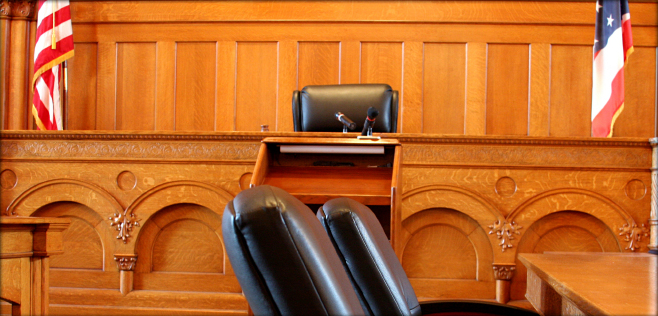Government Liability Accidents Lawyer in Denver, Colorado
Table of Contents
ToggleGovernmental immunity or sovereign immunity often exists in various types of personal injury claims in Colorado. Governmental immunity protects governmental entities from lawsuits for personal injury, which means the government cannot be sued by an individual for damages for certain types of personal injury claims.
Overview of Governmental Immunity and Liability in Denver, Colorado
In Colorado, governmental immunity only exists when stated by statute. Additionally, the government’s immunity may be waived in certain situations resulting in personal injury.
It is very important to contact a Denver, Colorado government liability accident lawyer immediately after you have sustained an injury caused by a governmental entity or governmental employee in the course of employment. According to the Colorado Revised Statutes sections 24-10-109, an individual that has sustained an injury by an act or omission by a government entity is required to file written notice within 180 days after the date the injury was discovered. Any failure to provide this notice within the specified time period will permanently prevent the injured party’s lawsuit for damages. Since this is a short time period, it is very important to immediately contact a government liability accident attorney once you have suffered a catastrophic injury.
Colorado Governmental Immunity Act
According to Article 10 of Title 24 of the Colorado Revised Statutes, the Colorado Governmental Immunity Act (CGIA) was created to address when the government is and is not liable for injuries or damages sustained at least in part by the government.
Additionally, the Colorado Government Immunity Act states that sovereign immunity bars any action against a public entity for injuries that are tort-based, except in certain situations.
The Colorado Governmental Immunity Act protects various government employees and public entities from lawsuits for personal injury, which, according to the Colorado Revised Statutes § 24-10-103, can include:
- Officers of the public entity;
- Employees of the public entity;
- Servants of the public entity;
- Authorized volunteers of the public entity;
- Any health care practitioner of the public entity;
- The state of Colorado;
- Counties in Colorado;
- Cities in Colorado;
- Municipalities in Colorado;
- Colorado school districts;
- Special improvement districts;
- Public colleges and universities; and
- Any other district, agency, instrumentality, or political subdivision of the state.
Denver Government Liability Accident Attorney in Denver, Colorado
Did you suffer serious injuries or was your loved one killed by a negligent government employee or on government property? You should immediately contact Donaldson Law, LLC to determine whether you may be able to seek compensation for your losses.
Jennifer Donaldson is a Colorado Government Liability Accidents Lawyer serving numerous areas in Jefferson County, Denver County, Boulder County, Arapahoe County, and Adams County. She can help you understand all of your legal options as soon as you call (303) 458-5000 to schedule a completely free initial consultation.
How to File a Denver Governmental Liability Claim
As stated in section 24-10-107 of the Colorado Revised Statutes, in cases where sovereign immunity is waived, the government’s liability is the same as a private person’s.
In order to file a lawsuit against a governmental entity in Denver, the injured party is required to follow certain provisions. For example, under the Colorado Revised Statutes § 24-10-109, the injured party is required to file a written notice with the attorney general or the attorney representing the public entity within 180 days after the date the injury was discovered. Any failure to follow this step will permanently bar an action for damages.
Additionally, the notice is required to include the following information:
- The name and address of the injured party;
- The name and address of the injured party’s lawyer;
- A statement about the basis of the claim, including the date, time, place, and event causing the injuries;
- The name and address of any public employees involved;
- A statement of the nature and extent of the injury claimed to have been suffered; and
- A statement of the number of monetary damages requested.
After this notice has been filed, the injured party must then wait at least 90 days before they can file a lawsuit for damages or wait for the government to deny their claim, whichever comes first.
Call Our Governmental Liability Attorney in Denver, Colorado
Claims against the government in Denver and Colorado are generally barred under the theory of sovereign immunity. However, this immunity may be waived. According to the Colorado Revised Statutes § 24-10-106, the government may waive immunity in personal injury actions arising from:
- The operation of a motor vehicle by a public employee while in the course of employment;
- The operation of any public hospital or correctional facility;
- A dangerous condition of any public building;
- The operation and maintenance of any public water facility, gas facility sanitation facility, electrical facility, power facility, or swimming facility;
- The operation and maintenance of a qualified state capital asset that is the subject of a leveraged leasing agreement;
- A dangerous condition of a public road, highway, or street that interferes with traffic; or
- A dangerous condition caused by an accumulation of snow and ice which physically interferes with public access on walks leading to a public building open for public business.
In these cases, the governmental entity can be sued for personal injury accidents that are caused by governmental employees or for dangerous conditions on government property.
Colorado Resources for Government Liability Accidents
Liability Program | Division of Human Resources (DHR) — This section of the DHR website provides an overview of the state’s liability program. You can find a link to a summary of the CGIA on this website. There is also a link to file a claim against the State of Colorado.
State Chief Human Resources Officer Kim Burgess
1525 Sherman Street
Denver, CO 80203
(303) 866-2171
Colorado Governmental Immunity Act (CGIA) — You can read the full text of the CGIA through this link. The legislation covers the reasons for limited sovereign immunity, when sovereign immunity is strictly construed, and when sovereign immunity can be broadly construed. You can also learn about the Trinity Process, the standard for appeal, and miscellaneous issues.
Colorado Government Immunity Act — You can read the full text of Colorado Revised Statute § 24-10-106 to fully understand the extent of situations in which the government may waive immunity. The statute discusses immunity and partial waiver, the duty of care, and the determination of liability. It also covers when notice is required, what costs a public entity can be liable for, and the effect of a judgment against a public entity or public employee.
Contact Our Denver, Colorado Governmental Liability Accident Lawyer in Denver For Your Free Consultation.
If you sustained catastrophic injuries or your loved one was killed because of the negligence of a government employee, you deserve to know all of your legal options. Donaldson Law, LLC fights to get full and fair compensation for clients in Thornton, Boulder, Aurora, Arvada, Littleton, Westminster, Longmont, Lakewood, Centennial, and several surrounding areas.
Denver accident attorney Jennifer L. Donaldson has over a quarter-century of legal experience. She can review your case when you call (303) 458-5000 or submit an online form today to schedule a free, no-obligation consultation.


















